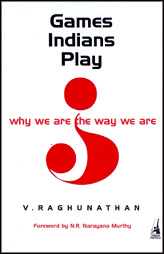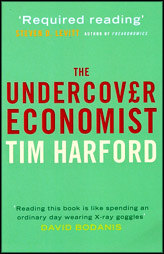Games Indians Play
Why are we a nation that is individually so smart and collectively so naive? Why do we mistake talk for action? Why is our self-worth massaged only if we have the ‘authority' to break rules? Why are we among the world's most corrupt? Why do we jump red lights? Why do we dump our garbage at the neighbour's doorstep? . . . Can it be our climate, population density, poverty, colonial past or even genetic encoding? In a rare attempt to understand the Indianness of Indians-perhaps the most intelligent people in the world, but also, to a dispassionate eye, among the most baffling-V. Raghunathan uses the props of game theory and behavioural economics to provide an insight into this most difficult question: why are we the way we are? Raghunathan tackles the question by putting under the scanner our attitudes towards rationality and irrationality, egotism and selfishness, our penchant for antagonism and competition, and our aversion to collaboration and cooperation. Drawing examples from the way we behave in day-to-day situations-from our attitude towards a cheating vendor to our attitude in a joint venture; from our tearing off a page from a library book to the way we leave our public toilets-he shows how in the long run even the most self-serving of us-businessmen, politicians, bureaucrats, common people-stand to profit more if we were to adopt a little self-regulation, give fairness a little more credence and cooperate instead of cheat.
Top rated books in this category































